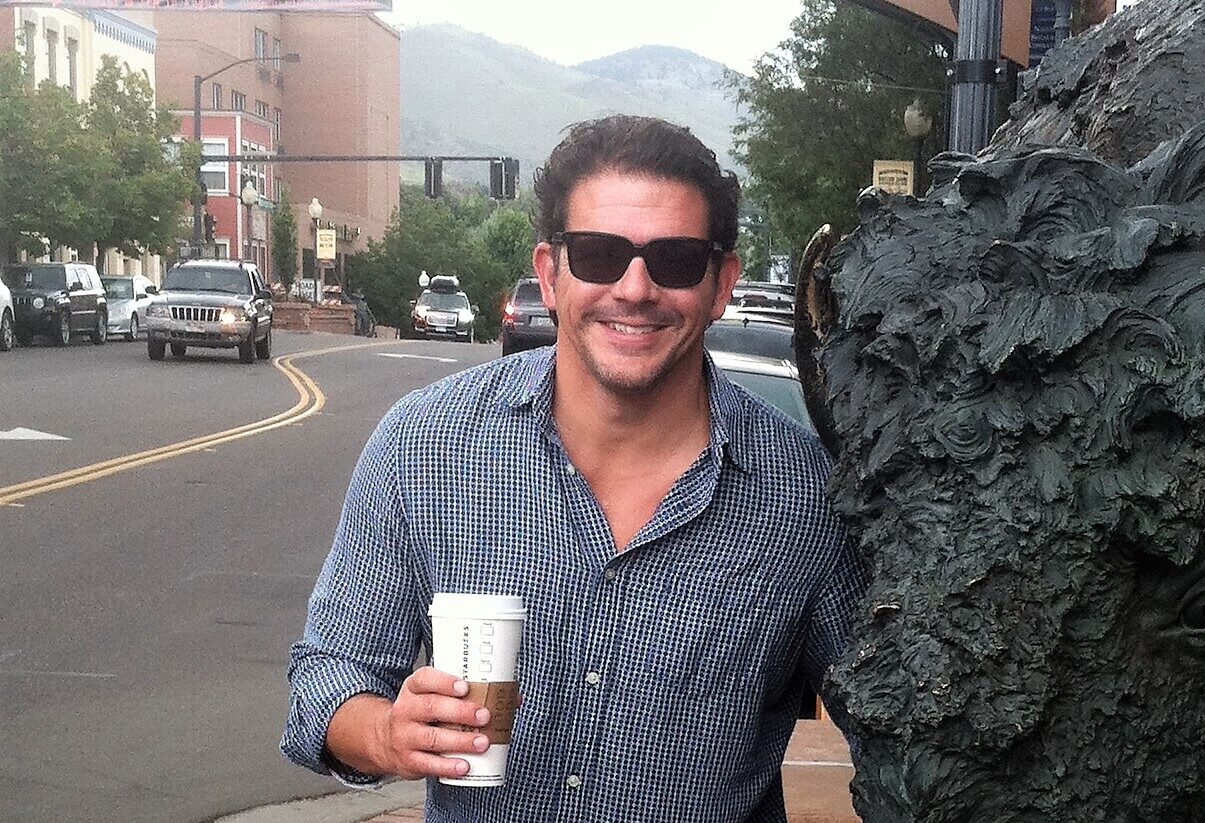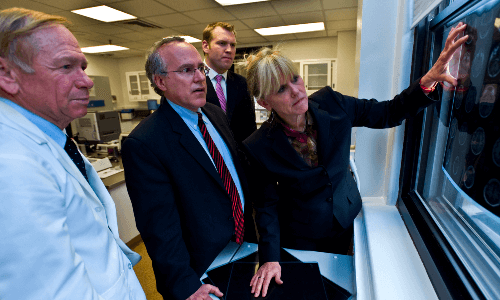Wes Bender was a standout fullback for the University of Southern California, the Kansas City Chiefs, Los Angeles Raiders, and New Orleans Saints. His strong work ethic, kind heart, and magnetic personality led to success in his post-football life building cars, laying concrete, and with dental equipment. But in the last years of his life, Bender developed severe short-term memory issues. He passed away on March 5, 2018 at age 47. Researchers at the UNITE Brain Bank later diagnosed him with Stage 2 (of 4) Chronic Traumatic Encephalopathy (CTE).
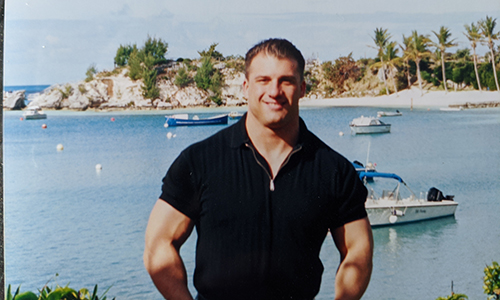
Wes Bender had a kind heart. He would take the time to speak with anyone and share his experiences and challenges.
Wes started playing Pop Warner at the age of six and was passionate about football. The very first time he took a handoff, he ran 80 yards for a touchdown. Wes was smaller than the average kid, but overcame that challenge with his speed.
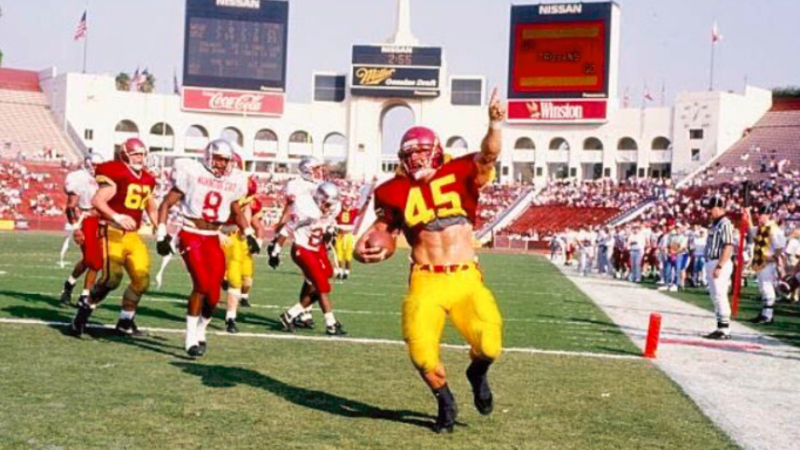
Wes was bright but sometimes his words and numbers were scrambled. His teachers, coaches, friends and family helped him until a key teacher recognized he had dyslexia. At the time, learning disorders like dyslexia weren’t common knowledge. Still, Wes overcame this challenge thanks to programs to help dyslexic students.
By the time high school rolled around Wes began to emerge with uncommon size, speed, strength, smarts, and competitiveness. The results? A powerful offensive running back who started as a freshman and sophomore at Burbank High School in southern California. But at the start of his junior year, the coaching staff wanted to move Wes to the offensive line. The proposed switch challenged his dream of being a college running back so he transferred schools to the cross-town rival, John Burroughs High.
Wes’ transfer to John Burroughs produced one of the most productive high school offenses in Southern California history. Against his old team, Wes scored a 50-yard touchdown run in a 41-0 victory. Wes’ success led to his induction into the John Burroughs Hall of Fame in 2015.
Dyslexia made it difficult for Wes to learn a foreign language, a college requirement. Many colleges were interested and offered scholarships, so he attended Glendale Junior College to refine his skills. Wes went on to set several Glendale College records and lead his team to win the Western State Conference title. His time at Glendale earned him a full athletic scholarship to play for the only college he would consider, the University of Southern California.
Wes started for two years at USC and set several weightlifting strength records that still stand posted in the weight room today. Wes was a powerful, hard-hitting fullback, routinely stuffing linebackers at full speed, blocking players in the open field, knocking them to the ground, and creating holes for the tailbacks to follow.
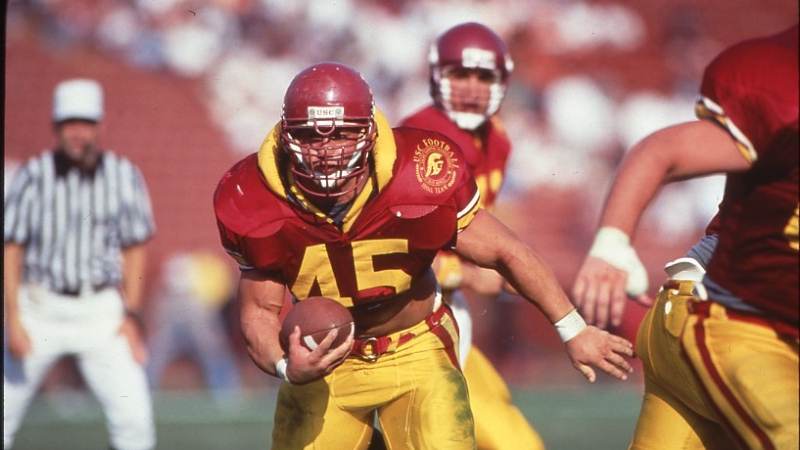
Mazio Royster was the tailback who benefitted from Wes’ blocks at USC.
“Wes was a great teammate, but an even better person,” Royster said. “It was my job as the tailback to read the fullback’s block. These were some of the most violent collisions imaginable and Wes never shied away from contact, complained, or even asked for praise.”
Wes’ incredible blocking earned him a shot in the NFL. Marty Schottenheimer, then head coach of the Kansas City Chiefs, said Wes was one of the best blocking running backs he had ever seen come out college.
Wes accomplished his dream to play in the NFL with the Chiefs. Wes earned the nickname “Fender Bender,” delivering crushing hits, knocking out All-Pros and Hall of Famers while team members would joke and tell him to tone it down a bit. An ankle injury sidelined him that year, leading him to his hometown Los Angeles Raiders. Wes was referred to as “Bam Bam” with the Raiders, receiving game balls and Monday night honors until he moved to the New Orleans Saints two years later.
New Orleans was Wes’ final stop in the NFL. He played for the “Coach” Mike Ditka. Coach Ditka preached tough, hard-hitting football. Wes was at home in New Orleans, winning more game balls, and creating key plays with his blocking.
Wes’ position and style of play led to countless head impacts. He suffered a reported 23 concussions in his football career. He retired from the NFL in 1997.
The football chapter of Wes’ life was closed, opening the door to the business world. Wes always loved to modify cars and trucks, so he started a successful business building modified four-wheel drives and other auto specialties. Wes was very good with people, had a kind heart and would chat with anyone. One of his clients thought he might enjoy the sales and service elements of the concrete business.
Wes was very successful running large concrete jobs in Los Angeles, but some things in his life were not clicking fully. Sleep became more challenging, as Wes would wake up frequently at night. He became overwhelmingly stressed by simple things most people can cope with easily. The concrete business was very competitive, stressful, and becoming too much for Wes, so he decided to retire from that business due to health concerns.
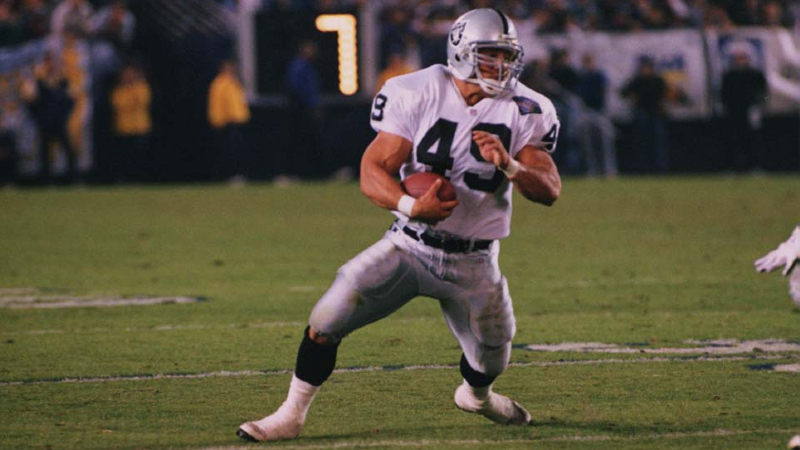
The final chapter was starting a business with family in the medical and dental industry. This was perfect, helping the business get started at his Alma Mater USC and crosstown rival UCLA. The UCLA dental program loved Wes, despite him being a USC alum.
Wes could always make you laugh and could remember movie lines from 30 years ago or jokes from childhood. But he strangely couldn’t remember what he had for dinner the night before, or a conversation he had with a salesperson a week ago about training.
“What was going on?” we’d ask Wes.
Wes would get frustrated and say, “I just can’t remember.”
Simple tasks, things most people don’t think about became a challenge. Wes would run to the store to get milk and then forget why he went to the store.
My brother Wes passed away in his sleep on March 5, 2018 at age 47. The stress of his life was too much for his heart and his brain.
Four months before his death, Wes completed his will and stated his intention for his brain to be studied at the UNITE Brain Bank in Boston. At the time, we thought this was an interesting decision, but we followed his request and sent his brain to the Brain Bank.
There, researchers diagnosed Wes with Stage 2 (of 4) Chronic Traumatic Encephalopathy (CTE). We didn’t know it at the time, but Wes’ intuition about his brain was correct.
